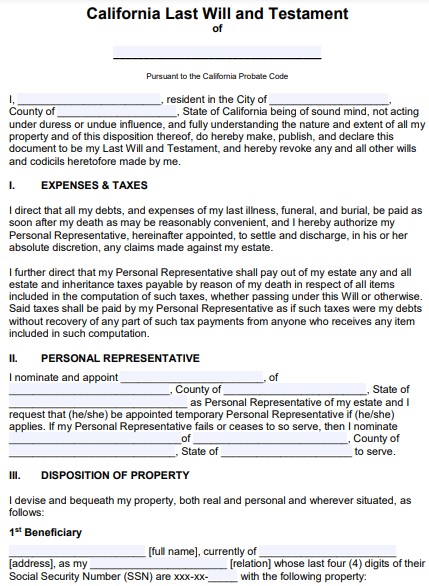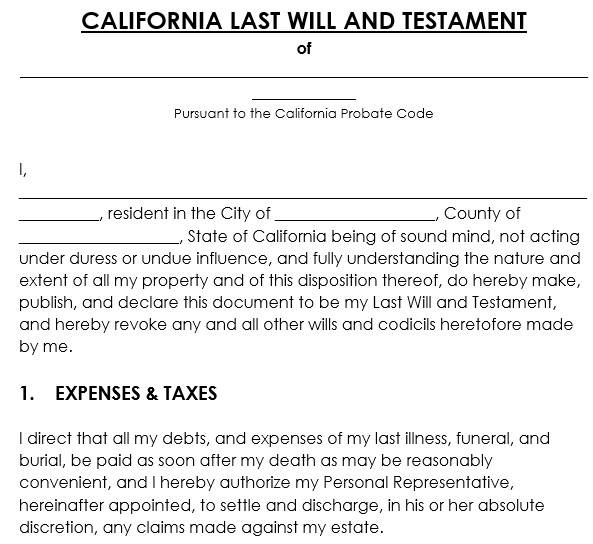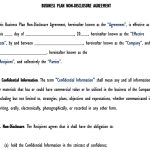A California last will and testament template is a legal document that states how to distribute an individual’s property to their beneficiaries after their death. By using this legal document, the testator ensures that their loved ones get the share of the estate that is designated for them.
Moreover, the presence of at least two trustworthy witnesses will require while the creating of the will. Also, they must be present when the will is signed. The Last will is an important document in California for distributing real and personal property upon the owner’s death.
Table of Contents
In California, the importance of using a Will:
The Last Will comes with various benefits. Providing the testator with the assurance that his assets will be divided as per his wish after his death is one of these advantages. Furthermore, the testator provides the name of the executor of the estate through a will. The executor is basically an in charge of carrying out the bequests in the will. In California, a Will also allows you to assign a person to act as the legal guardian of your children and manage property affairs left to them.
The important requirements for a California Will:
Here are the basic requirements for California Last Will and Testament;
Testator requirements
The testator over 18 years of age with a sound mind can make a will as per the law. Here sound mind refers to you are conscious of your actions while making your will. In addition, an individual must have the following;
- Complete knowledge of what they were doing
- Understood why they were creating a will
- The type of property they were transferring
- To whom they were transferring the property
If you aren’t sure about a testator’s mental state while making the will and at the time of signing then a will must include a letter from a doctor attesting to this.
Exceptions to the capability to divide property
If the property is was registered in the testator’s name at the time of death then it is possible to transfer property through a will. The terms of the will don’t apply to the following;
- Property that is jointly owned
- Community property with the right of survivorship
- Property owned by a registered domestic partner
State laws
A will includes a codicil and all other testamentary instruments that appoint an executor or revoke another will as per the Probate Code § 88. According to Probate Code § 6110, two or more witnesses must be present when a will is signed. Additionally, you can cancel a will by destroying it physically according to California law.
Beneficiaries
Under California law, the property can be divided to beneficiaries. In California, the assets acquired during a marriage belong to both spouses equally. You can leave your assets the way you want them to be by having last will and testament.
Executor
It is necessary in California to use a will to designate an executor. The executor is responsible to carry out the terms of testator’s will after his or her passing.
Witnesses and Signature
The will must be signed in front of two witnesses to make it finalize. Also, make sure that either of the witnesses should be a beneficiary of the will. The holographic or handwritten will doesn’t need witnesses.
Writing
In the state of California, your Last will must be in written form. Some states permit to make a legal will digitally and without having to print it, allow you to create it, sign it, and have it witnessed.
File the will with the court
It is necessary in California to file the will with the court within 30 days after the demise of the testator. The executor has to file the will in the local probate court.
California Last Will and Testament Template
Free California Last Will and Testament Form
Conclusion:
In conclusion, the California last will and testament template is an important document that outlines how your assets and properties will be distributed after your death. The distribution of the decedent’s property is governed by the California probate codes.








